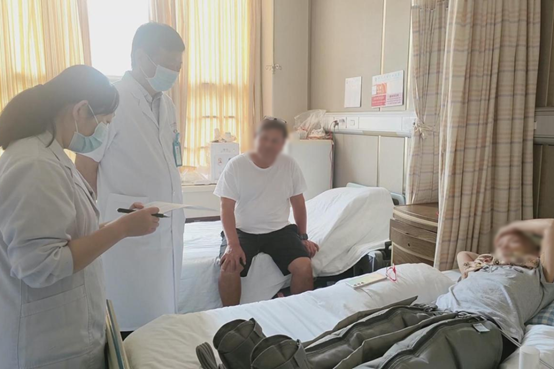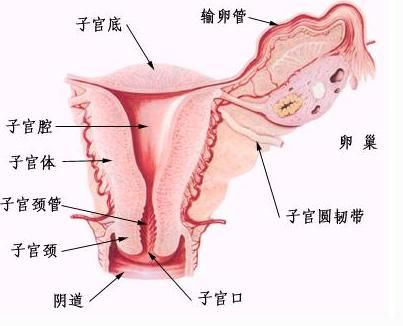Among the many health risks that women face, "tubal cancer" is perhaps the least mentioned. Despite being a rare gynecological tumor with a relatively low incidence rate, its insidious onset makes it always lurking, ready to strike a heavy blow to patients. Since Orthmann reported the first case of primary tubal cancer in 1888, the challenge for oncologists has been to develop more rational treatment plans to improve the prognosis of patients with this condition.
Jitla: After Eight Years of Torment, She Made It Through!
Jitla (a pseudonym), a woman in her early fifties from Thailand, had been repeatedly tormented by tubal cancer for over eight years. In 2016, Jitla was diagnosed with tubal cancer after experiencing increased vaginal discharge. She underwent surgery for tumor removal, and her staging was classified as Stage IC. To control tumor progression, Jitla received chemotherapy. In her view, surgery followed by chemotherapy is a standard treatment for cancer. Though chemotherapy was painful, the results were good—her CA125 tumor marker decreased to normal, and no recurrence or metastasis was detected.
However, in 2021, Jitla’s CA125 level rose, and the tumor spread to her abdominal cavity. She underwent cytoreductive surgery, chemotherapy, and targeted therapy. But this time, the side effects were severe: nausea, vomiting, trembling, and more, causing her to fear the treatment even though the disease was somewhat controlled. Soon after, she experienced abdominal pain, her CA125 level rose again, and PET-CT scans revealed that the peritoneal metastasis had worsened, with new splenic metastasis.
Jitla refused the chemotherapy recommendation from local doctors, unwilling to endure the pain again. She attempted to control tumor growth through a strict diet, eliminating meat, oil, sugar, and animal proteins, but the result was worsening malnutrition, with tumors growing larger and abdominal pain intensifying.
Having read about Fuda Cancer Hospital in Guangzhou, she learned that it wasn’t just a place for surgery, chemotherapy, and radiotherapy. She also reached out to a sister who had received cryoablation treatment at Fuda, and was pleased to hear that her sister was doing well. Jitla was eager to try cryoablation herself, but worried it might cause pain.
As her condition worsened, Jitla and her family decided to take a last-ditch effort and flew to Fuda Cancer Hospital in April 2024. Upon arrival, Dr. Xing Yanli, deputy director of the Fourth Medical Department, informed her that cryoablation was not suitable for her, and suggested interventional chemotherapy.
Her first reaction to chemotherapy was refusal, but she was explained that interventional chemotherapy, which involves directly infusing drugs into the tumor via the arteries, had fewer side effects than traditional chemotherapy. It is a minimally invasive, relatively effective treatment that addresses both local and systemic aspects of the disease. After understanding the procedure, Jitla agreed to the interventional chemotherapy, combined with immunotherapy.

To her surprise, aside from a slightly stronger reaction during the first session due to her weak condition, the subsequent treatments were easy to endure. Follow-up tests showed that the tumor had shrunk, her CA125 level returned to normal, and her weight increased to 38 kilograms. She attributed her recovery to the teamwork at the hospital, saying that it was their collective effort that allowed her to improve so significantly. Compared to her previous suffering, she now felt she had many more years to live.

Marit: 12 Years of Fighting Cancer, Here’s Why She’s Still Going Strong!
Similarly, Marit (a pseudonym), a tubal cancer patient from the Philippines, recently returned to Fuda for treatment in the Fourth Medical Department under the care of Dr. Xing Yanli.

Marit has been battling cancer for over twelve years. In late 2011, she was diagnosed with a 5 cm mass in the left adnexa after experiencing vaginal bleeding. As her CA125 level increased and the mass grew, she underwent surgery to remove the tumor, and pathology confirmed it was tubal cancer. Like Jitla, she started chemotherapy after the surgery, but soon experienced metastasis. The side effects of chemotherapy led her to seek alternative treatments. In September 2012, she visited Fuda Cancer Hospital for interventional chemotherapy.
Marit vividly recalls her first visit to Fuda. "Many experts gathered to discuss how to treat me. They were very gentle and clear about the next steps." When Marit realized that she responded well to the interventional therapy, and the side effects were much milder than traditional chemotherapy, she was pleasantly surprised. After each session, she was able to walk around and carry on with normal activities.
Over the years, aside from receiving one iodine particle implantation, she had regular immunotherapy sessions and her condition remained stable. However, in 2021, she developed metastasis in the left lumbar region. Due to the pandemic, she was unable to return to Fuda and had to undergo radiation and chemotherapy locally, but still experienced pain in her back. In 2023, Marit returned to Fuda for a combination of cryoablation, interventional chemotherapy, and iodine particle implantation. She believes that it is the multidisciplinary approach at Fuda that has given her hope to continue her treatment.

Currently, Marit’s lumbar tumor has visibly shrunk, and her pain has been alleviated. Her overall condition is stable. She views her cancer journey as a life experience—one that, at times, was so harsh she couldn’t get out of bed, but one that has also allowed her to live a normal life: spending time with her family, caring for her children, traveling, and building bonds with the Fuda team. She believes that with Fuda’s help, she will continue to persevere and live a better life.
Tubal Cancer: A Rare and Often Overlooked Gynecological Malignancy
Primary tubal cancer is a rare malignant tumor in gynecology, accounting for 0.14% to 1.80% of all female reproductive malignancies. Early-stage disease is often asymptomatic and easily overlooked or misdiagnosed. As the disease progresses, patients may present with vaginal discharge, abdominal pain, and pelvic masses, collectively known as the "triad" of tubal cancer. Because the fimbrial end of the fallopian tube is directly exposed to the pelvic cavity, once malignant changes occur, the likelihood of metastasis is high. Dr. Xing Yanli, deputy director of the Fourth Medical Department at Fuda Cancer Hospital, reminds women to pay attention to regular health check-ups and seek medical advice promptly if they experience any discomfort.

